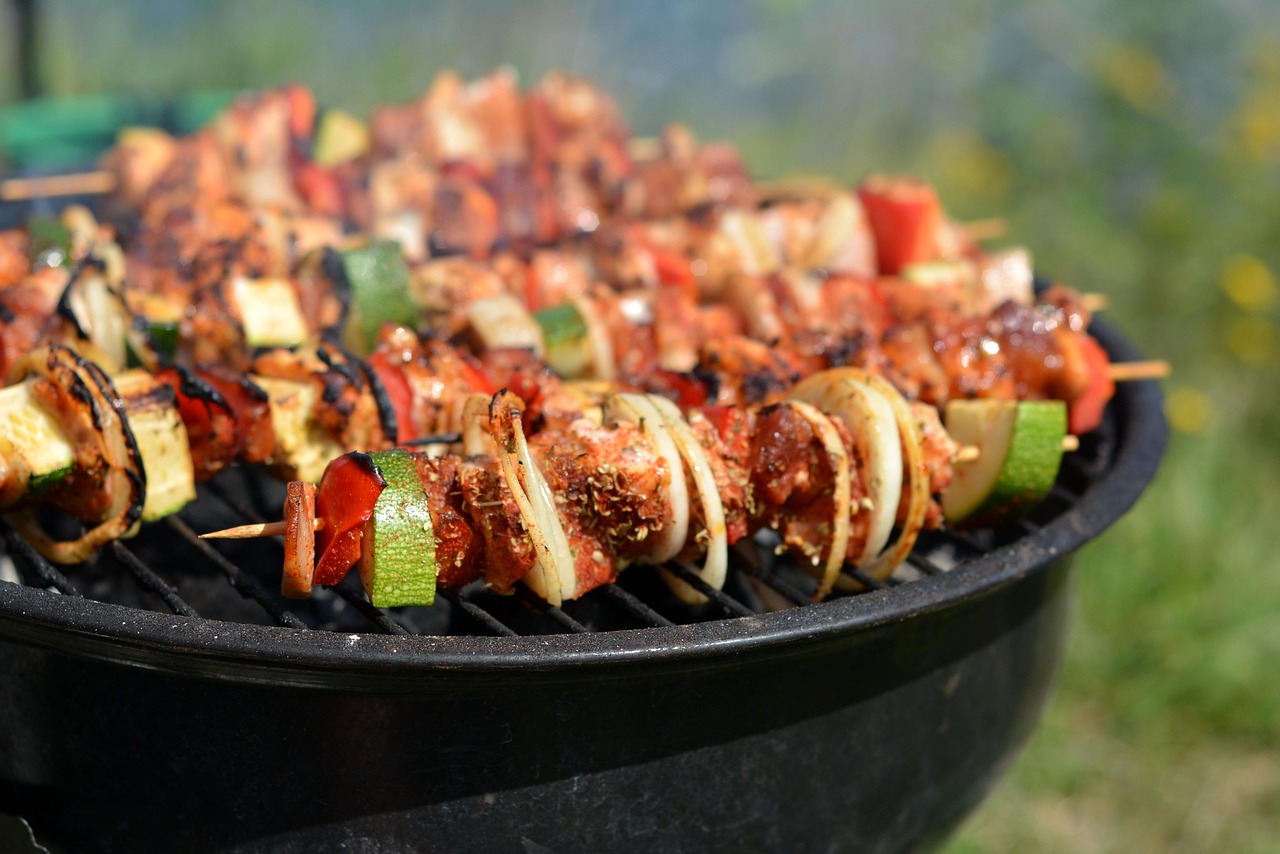Smokin' summer: Celebrate grilling month with food safety in mind
By Teresa Henson
U of Arkansas System Division of Agriculture
July 10, 2025
Fast facts
- Marinate foods in the fridge
- Temperatures matter
(540 words)
(Newrooms: With art)
LITTLE ROCK — July is National Grilling Month — a perfect time to enjoy the great food and the outdoors and invite friends and family, but not foodborne illness.
Whether you're grilling at home or transporting food to a cookout, practicing safe food handling is essential from the refrigerator or freezer all the way to the table.
Here are safe grilling tips from the U.S. Food and Drug Administration to help keep your meals both tasty and safe:
- Marinate safely. Always marinate foods in the refrigerator, not on the counter or outdoors. If you plan to use some of the marinade as a sauce, set it aside before adding raw meat, poultry, or seafood. Never reuse marinade that has touched raw food.
- Partial cooking? Be cautious. Partial cooking is only safe if the food goes directly onto a hot grill immediately afterward ideal for times when you're grilling on your patio.
- Cook to the right temperature. Use a kitchen meat thermometer to ensure that food reaches a safe internal temperature:
- Poultry and ground poultry: 165 degrees Fahrenheit
- Ground meats and hamburgers: 160 degrees Fahrenheit
- Beef, pork, lamb, veal (steaks, chops, roasts): 145 degrees Fahrenheit, with a rest time of at least three minutes.
- Fish: 145 degrees Fahrenheit or until the flesh is opaque and flakes easily with a fork.
- Shrimp, lobster, crab: Cook until flesh is pearly and opaque.
- Keep grilled food hot. Move cooked food to the edge or back of the grill, away from direct heat, to keep it warm without overcooking.
- Clean utensils and surfaces. After food prep, wash all cutting boards, dishes, utensils, and countertops with hot, soapy water to prevent cross-contamination.
- Inspect for bristles. If you use a wire bristle brush to clean the grill, carefully check the grill grates and food to ensure no bristles are left behind.
- Avoid cross-contamination. Wrap raw meat, poultry, and seafood tightly to prevent juices from contaminating other foods, especially ready-to-eat items like fruits and vegetables.
- Stay out of the danger zone. Never leave food sitting in the temperature danger zone — between 40 degrees Fahrenheit and 140 degrees Fahrenheit — for more than two hours, or one hour if the temperature outside is above 90 degrees Fahrenheit. Bacteria multiply quickly in this range, increasing the risk of foodborne illness
Check out these helpful links for more information:
- FDA: Handling Food Safely While Eating Outdoors
- Partnership for Food Safety Education: Food Safety on the Move
To learn about extension programs in Arkansas, contact your local Cooperative Extension Service agent or visit www.uaex.uada.edu. Follow us on X and Instagram at @AR_Extension. To learn more about Division of Agriculture research, visit the Arkansas Agricultural Experiment Station website: https://aaes.uada.edu/. Follow on X at @ArkAgResearch. To learn more about the Division of Agriculture, visit https://uada.edu/. Follow us on X at @AgInArk.
About the Division of Agriculture
The University of Arkansas System Division of Agriculture’s mission is to strengthen agriculture, communities, and families by connecting trusted research to the adoption of best practices. Through the Agricultural Experiment Station and the Cooperative Extension Service, the Division of Agriculture conducts research and extension work within the nation’s historic land grant education system.
The Division of Agriculture is one of 20 entities within the University of Arkansas
System. It has offices in all 75 counties in Arkansas and faculty on three campuses.
Pursuant to 7 CFR § 15.3, the University of Arkansas System Division of Agriculture
offers all its Extension and Research programs and services (including employment)
without regard to race, color, sex, national origin, religion, age, disability, marital
or veteran status, genetic information, sexual preference, pregnancy or any other
legally protected status, and is an equal opportunity institution.
# # #
Media Contact: Mary Hightower
mhightower@uada.edu
